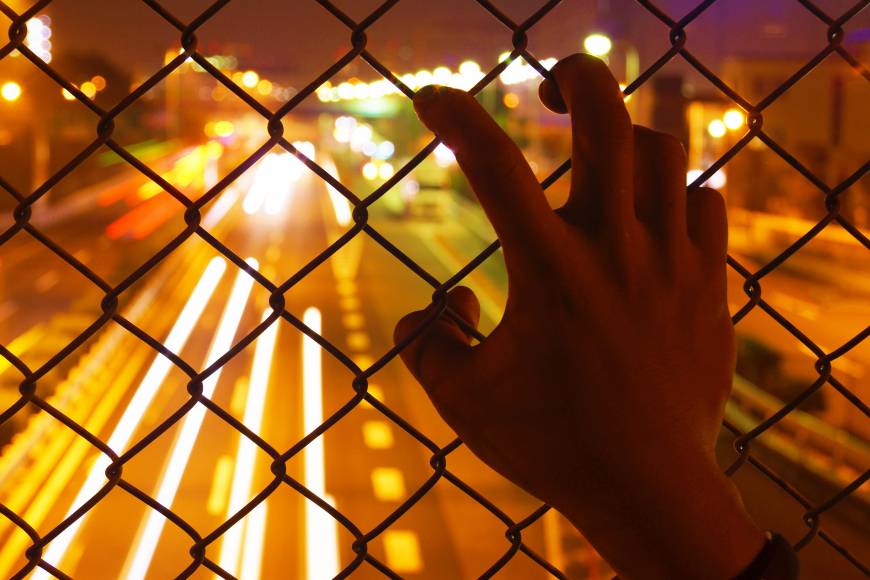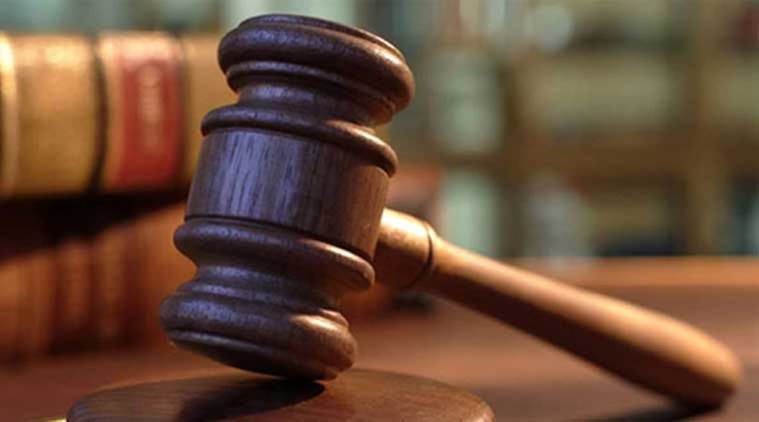Malaysian
Bar adopted a Resolution calling for the abolition of the death penalty
at its Annual General Meeting in March 2006, and now we have the Japan
Federation of Bar Associations doing the same. We hope that all other
Bar Associations and Lawyer Organisations especially in countries that
retain the death penalty will also do the same soon.
See related post:-
2006 - Malaysian Bar adopts Resolution on the Abolition of the Death Penalty
ADPAN URGES JAPAN FEDERATION OF BAR ASSOCIATION(JFBA) MEMBERS TO TAKE A STRONG CLEAR STANCE FOR THE ABOLITION OF THE DEATH PENALTY

National
In historic move, Japan’s legal community takes stand against death penalty
by Alastair Wanklyn
Staff Writer
Japanese lawyers positioned themselves against the
death penalty on Friday, as the Japan Federation of Bar Associations
called for abolition of a punishment that critics say is uniquely cruel
and vengeful.
JFBA members approved a declaration that seeks to abolish
the death penalty by 2020 and to replace it with life imprisonment, a
change that will bring Japan into line with most other developed
nations.
The JFBA represents around 37,600 Japanese lawyers and hundreds of foreign legal professionals. In the past it has expressed unease over the death penalty but has stopped short of taking a stand against it.
Friday’s move will set the legal profession against the
government, which has executed 16 people since Prime Minister Shinzo Abe
came to power in 2012.
In a joint statement, the European Union and the Norwegian, Icelandic and Swiss embassies called the JFBA’s decision “timely and welcome.”
“We hope that an open, public debate on this issue in Japan will follow, allowing the people of Japan to weigh for themselves the evidence from a growing number of countries . . . that an abolition of death penalty can actually strengthen the capacity of judicial systems to effectively deliver justice and, at the same time, prevent irreversible miscarriages of justice,” they said.
The move was welcomed by activists, who say the death penalty is error-prone and leaves prisoners with no opportunity for rehabilitation.
“Capital punishment in all cases should be abolished because the inherent dignity of the person cannot be squared with the death penalty, a form of punishment unique in its cruelty and finality,” Kanae Doi of the Tokyo branch of Human Rights Watch said Friday.
“The death penalty is widely rejected by rights-respecting democracies around the world and I see no reason why Japan cannot follow the stream. I welcome the JFBA restarting the discussion in this direction.”
EU governments have been lobbying hard for Japan to end executions. British, French and Italian diplomats press the case regularly in their meetings with lawyers, legislators and journalists.
Some European diplomats privately express frustration that abolition is not even a subject of public debate in Japan.
The French Embassy in Tokyo said Friday it hopes that discussion will now emerge.
“We have been calling on Japan to introduce a moratorium for many years,” the embassy said in a statement. “In this respect, we salute the declaration of the JFBA. The death penalty is a moral issue, but it is also necessary to question its usefulness.”
Japan is one of only two Group of Seven nations that retain the death penalty.
In the U.S., figures show the trend is slowing. Executions in the U.S. this year are on track to be the lowest in 25 years, and the trend is matched by a sharp decline in the number of death sentences passed by American courts.
Japan’s death row prisoners are usually kept in solitary confinement and are required to stay silent, conditions that critics call both inhumane and excessively punitive.
Doubts about the reliability of convictions have been fueled by cases such as that of Iwao Hakamada.
He was sentenced to death in 1968 in a case based on evidence apparently fabricated by police.
Hakamada was freed in 2014 but now lives with severe mental impairments after more than four decades on death row.
In 2015 Japan executed three prisoners. That year, the case of 89-year-old Masaru Okunishi also drew attention. He died in the hospital after 46 years on death row, fighting to clear his name in the murders of five women. He said his confessions were forced and sought a retrial on nine occasions. - The Japan Times, 7/10/2016
Japanese lawyers urge country to abolish death penalty
Japan has one of the world's lowest murder rates, making the need for capital punishment unconvincing, the federation said.
By: AP | Tokyo | Published:October 7, 2016 9:33 pm

The Japan Federation of Bar Associations urged the government on Friday to introduce life imprisonment to replace execution.
Japanese bar associations have formally adopted a policy against the
death penalty for the first time, demanding the government abolish
execution by 2020 when Japan hosts the Olympics and an international
conference on criminal justice. The Japan Federation of Bar Associations
urged the government on Friday to introduce life imprisonment to
replace execution.
Japan has one of the world’s lowest murder rates, making the need for capital punishment unconvincing, the federation said. It also cited the risk of wrongful convictions and the lack of evidence that the death penalty reduces crime. Nearly 130 prisoners are on death row in Japan, according to justice officials. Crimes subject to a possible death penalty in Japan include murder and acts such as arson or sabotage that cause death, usually in the most egregious cases or involving multiple victims, as well as terrorist attacks and attempted coups.
“We should face the fact that the death penalty … is a serious and grave violation of human rights by the state,” the group said in a statement, adopted after heated debate and objection by opponents at a convention in Fukui, western Japan. The statement said the possibility of mistrials and wrongful accusations could not be denied. “Once carried out, the death penalty is irreversible and fundamentally different from other punishment.”
Four death row prisoners have been found innocent and released after being granted retrials since the 1980s, including former professional boxer Iwao Hakamada, who won release in 2014 after nearly 50 years on death row for a wrongful murder accusation. Japan and the US are the only Group of Seven members that maintain the death penalty, while 140 nations have ended the practice that opponents consider cruel.
The prospect of any change is unclear as the majority of Japanese still support the death penalty. Some lawyers favor keeping the capital punishment as a way to address the victims’ feelings. At today’s convention, a group of lawyers handed out leaflets, unsuccessfully trying to vote down the federation-wide policy. Membership in a local bar association is compulsory for Japan’s more than 37,000 lawyers, and its members include a few hundred other people, such as foreign lawyers. - The Indian Express, 7/10/2016
Japan has one of the world’s lowest murder rates, making the need for capital punishment unconvincing, the federation said. It also cited the risk of wrongful convictions and the lack of evidence that the death penalty reduces crime. Nearly 130 prisoners are on death row in Japan, according to justice officials. Crimes subject to a possible death penalty in Japan include murder and acts such as arson or sabotage that cause death, usually in the most egregious cases or involving multiple victims, as well as terrorist attacks and attempted coups.
“We should face the fact that the death penalty … is a serious and grave violation of human rights by the state,” the group said in a statement, adopted after heated debate and objection by opponents at a convention in Fukui, western Japan. The statement said the possibility of mistrials and wrongful accusations could not be denied. “Once carried out, the death penalty is irreversible and fundamentally different from other punishment.”
Four death row prisoners have been found innocent and released after being granted retrials since the 1980s, including former professional boxer Iwao Hakamada, who won release in 2014 after nearly 50 years on death row for a wrongful murder accusation. Japan and the US are the only Group of Seven members that maintain the death penalty, while 140 nations have ended the practice that opponents consider cruel.
The prospect of any change is unclear as the majority of Japanese still support the death penalty. Some lawyers favor keeping the capital punishment as a way to address the victims’ feelings. At today’s convention, a group of lawyers handed out leaflets, unsuccessfully trying to vote down the federation-wide policy. Membership in a local bar association is compulsory for Japan’s more than 37,000 lawyers, and its members include a few hundred other people, such as foreign lawyers. - The Indian Express, 7/10/2016
Japan lawyers' group seeks end to death penalty
An execution chamber is pictured at the
Tokyo Detention Center in Tokyo August 27, 2010. Japan opened up its
gallows for the first time to domestic media on Friday, a move that
could spark public debate over executions in a country where a hefty
majority supports retaining the death penalty. Mandatory credit
Kyodo/File Photo via
REUTERS
| TOKYO
Human rights advocates have long denounced Japan's capital punishment system, under which prisoners are told without warning they will be hanged within hours, but there has been little momentum for change.
Some 80 percent of the public and the core of Prime Minister Shinzo Abe's ruling party favor capital punishment. Japan and the United States are the only two members of the Group of Seven advanced economies to practice it.
The Japan Federation of Bar Associations issued a declaration calling for the abolishment of the death penalty by 2020, citing the possibility of wrongful convictions and international trends against capital punishment. It also said there was little evidence that it deterred crime.
"There's a serious risk of false charges under Japan's criminal justice system, which has fatal flaws in the disclosure of evidence and long periods of detainment and interrogation," the statement said.
The death penalty is currently used for crimes including murder, coups and arson or rape that causes death.
The move by the lawyers' group was expected to be opposed by a politically vocal victims' rights group, which has consistently urged that the death penalty be maintained.
"When a life is taken by crime, that life will never return," the group said on its homepage. "For the dead person's loved ones to want heavy punishment is only natural."
The danger, said Shizuka Kamei, a former Cabinet member who was a police official for decades before entering politics, was that an innocent person may end up condemned.
"Depriving an innocent, defenseless person of their life is a heinous killing on the part of the nation," Kamei, head of an anti-death penalty lawmakers group, said during a news conference on Thursday.
Proponents of the death penalty say it deters crime, but activists note that nearly 99 percent of criminal trials in Japan end with convictions and reliance on confessions is high. Suspects are not always guaranteed the presence of a lawyer.
There were 127 people on death row at several prisons around Japan at the end of 2015.
(Additional reporting by Tetsushi Kajimoto and Malcolm Foster; Editing by Nick Macfie) - Reuters, 7/10/2016
No comments:
Post a Comment